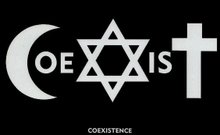 Complementarians differ on the issue of women deacons. Moderates say yes (like the church I attend) and others say no because any position that "elevates" a woman above the "lay people," which undoubtedly includes MEN, would give the impression that certain women exercise an authority in the church that certain men do not/cannot exercise, therefore women cannot be deacons because it would directly or indirectly put them in "authority" over some men. Pretty much all churches of the complementarian-persuasion are united in the belief that women cannot be elders/bishops/overseers. Note: all three terms are used interchangeably within the New Testament, and both complementarians and egalitarians agree that elder/bishop/overseer is the same leadership role.
Complementarians differ on the issue of women deacons. Moderates say yes (like the church I attend) and others say no because any position that "elevates" a woman above the "lay people," which undoubtedly includes MEN, would give the impression that certain women exercise an authority in the church that certain men do not/cannot exercise, therefore women cannot be deacons because it would directly or indirectly put them in "authority" over some men. Pretty much all churches of the complementarian-persuasion are united in the belief that women cannot be elders/bishops/overseers. Note: all three terms are used interchangeably within the New Testament, and both complementarians and egalitarians agree that elder/bishop/overseer is the same leadership role.
I personally find it hard to believe that if a woman like Junia could be considered an apostle (not one of the 12 obviously, but one of the later apostles that witnessed Christ's ascension...) and apostles were the ones who were traveling missionaries, who planted churches, and appointed elders and deacons, that women would be denied the opportunity to serve as an elder or deacon. Plus, with the numerous legitimate female prophets recorded in both testaments, it's a bizarre notion that women would be prohibited from being a deacon or elder, two positions that were "under" apostles and prophets. The way we "modern" Christians "DO" church is quite different from the first century. The "office" of apostle and prophet are pretty much obsolete now. But in the first century church, apostles and prophets were at the top of the food chain (if one must be concerned with hierarchy.)
"And God has appointed in the church, first apostles, second prophets, third teachers, then miracles, then gifts of healings, helps, administrations, various kinds of tongues."--1 Corinthians 12:28
So, Paul considers apostles and prophets to be the most "authoritative" figures, although the whole purpose for any of these positions is sacrificial service and empowering others through the gifts of Holy Spirit to take part in what God is doing, not to have power over others. TEACHERS come next, which modern day pastors have become in the church, and so forth. Even if one denies that Junia was an apostle, one can hardly deny the abundance of legitimate female prophets in both testaments. Prophecy is not limited to predicting the future or receiving a new word from God. Prophecy can also come in the form of wisdom (which can be a teaching), knowledge, encouragement, and a reminder to God's people of their obligations to God and each other. Both prophets in the Old and New Testament did this. Prophetic voice s challenged the status quo to return people's hearts to God. A prophet's role is very similar to the role pastor. Prophecy takes on new dimensions in the New Testament age and goes beyond speaking "thus saith the Lord," although I cannot think of a MORE authoritative task. Prophecy can also be instruction for the building up of the entire body, given so all "may learn," "be encouraged," and just like teaching, it should be evaluated. Just because one prophesies or teaches does not make them unquestionable or above error. Hearers are always suppose to evaluate prophecy and teaching for themselves. Prophecy and teaching are GIFTS, not originally "offices," and definitely not a way to control or dominate people. That is why it is beyond me that some churches forbid women from expounding upon the scriptures in front of her church body, if she is capable. Can we not evaluate what a woman teaches as we do, or as we should do, when men teach? Doesn't true authority lie with Christ and His truth, not with the vessel that proclaims it?
So, in the next post we will look at the "requirements" for elders and deacons, the original language, various interpretations, and church history.
I'm curious as to what opinion readers of this blog hold to and if they align with their own church bodies. Do you think women can be elders and deacons, or neither, or women can be deacons, but not elders?


















